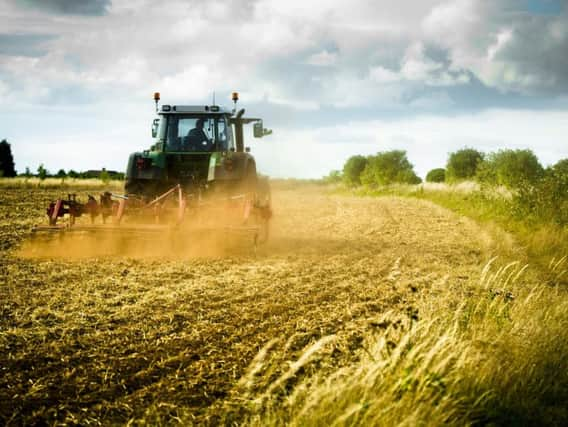Agriculture Bill puts fresh focus on the relationship between farming and the environment


Environment Secretary, Theresa Villiers, said the Bill would transform British farming enabling it to strike a balance between food production and the environment, describing it as “one of the most important environmental reforms for many years”.
The Bill lays out the scheme to pay farmers “public money for public goods”, which will replace the EU subsidy payments once the country leaves Europe and the Common Agricultural Policy.
Advertisement
Hide AdAdvertisement
Hide AdKnown as the Environment Land Management Scheme (ELM), it will reward farmers for measures to protect land, water and air, support plants and wildlife, tackle climate change, maintain landscapes, improve public access and boost animal welfare.
Minette Batters, president of the NFU, said it was encouraging to see the Bill now recognising that food production and caring for the environment go hand-in-hand.
“Farmers are rightly proud of their environmental efforts and it is crucial this new policy recognises and rewards the environmental benefits they deliver, both now and in the future,” she said.
New Farm Payments Bill is welcomed by farming organisations but there is doubt about the Government's commitment to defend interestsRural Britain deserves a far bigger share of police resources to tackle crimeBut she added the government’s commitment to investing in supporting farmers to improve productivity will be critical.
Advertisement
Hide AdAdvertisement
Hide Ad“The delivery of sustainable and climate-friendly food systems cannot be achieved in the absence of viable and profitable farm businesses,” she said.
The changes will be brought in over seven years and last week the Government published its legislation on the Farm Payments Bill which pledged to maintain the UK’s current levels of funding for agriculture, which is around £3.4bn, for this Parliament.
But CLA president, Mark Bridgeman has urged a 12-month delay in the transition period to allow businesses enough time to adapt.
“The transition period is set to begin from 2021, but the delay in the Bill and the lack of clarity of how direct payments will be removed during the transition period means there is still much uncertainty among farmers and land managers,” he said.
Advertisement
Hide AdAdvertisement
Hide Ad“The seven-year transition period will see the removal of direct payments, which have been the mainstay of support for many years, and a move to the new Environmental Land Management Scheme (ELMS) that will only be fully available from late 2024 under current plans.
“The Government should allow proper time for farmers and land managers to adjust and adapt, ideally by delaying the start of the transition by 12 months. This would allow farmers to make long-term plans, once the details become clearer about both the crucial trade deal and future schemes.”
Mr Bridgeman said the Govern-ment’s funding guarantee was warmly welcomed but farmers needed to know how it would affect them personally.
“Government should set out the profile of the transition and how ELMS will work in detail as a matter of urgency and guarantee that there will be no delays in its implementation.” The Bill, which fell before becoming law when the General Election was called, now has more focus on food security, a measure which has also been welcomed by the NFU.
Advertisement
Hide AdAdvertisement
Hide AdAt the recent Oxford Farming Conference, Ms Batters had called on the Government to introduce a food standards commission backed by legislation which would be able to make recommendations the Government was required to act on.
“A commitment to regularly report on food security to Parliament is reassuring but this must be more than simply a box-ticking exercise,” she said.
“It is vital that British farming continues to contribute a significant proportion of our nation’s food needs and that we set the ambition of growing more, selling more and exporting more British food.”
The Bill’s emphasis on the environment and the introduction of the ELM was welcomed by Wildlife and Countryside Link, the largest environment and wildlife coalition in England.
Advertisement
Hide AdAdvertisement
Hide AdCEO Richard Benwell said: “It is excellent to see the return of the Agriculture Bill, with payments for environment, public access and animal welfare at its core.
“This Bill has the potential to put farming and nature on a path to survive and thrive together. But to succeed, the law must be accompanied by firm funding plans beyond this Parliament, regulation to ensure that imports meet high environmental and welfare standards, and simple but strong enforcement requirements for farming rules.”